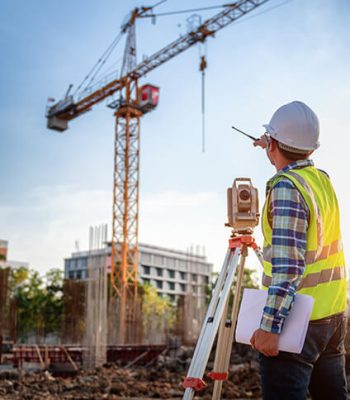Building Survey and DPR Preperation

- Building survey involves a detailed inspection of an existing building, including its structure, systems, and other components, to identify any defects or potential problems that may need to be addressed.
- DPR preparation is a comprehensive report that outlines the design, scope, cost, and timelines of a construction project.
Importance
- To provide a clear understanding of the condition of the building and any issues that may need to be addressed before any construction work begins.
- To identify opportunities for optimization, such as identifying ways to reduce the cost of the project, increasing efficiency, and ensuring that all necessary permits and approvals are in place.
A building survey and DPR (Detailed Project Report) are important and significant components in the construction and development industry.
Building Survey
A building survey is a comprehensive assessment and evaluation of a property’s condition, typically conducted by a qualified surveyor or engineer.
The purpose of a building survey is to provide an in-depth analysis of the building’s structural integrity, maintenance requirements, and overall condition. It involves a thorough inspection of various aspects of the property, including its construction, materials, systems, and any defects or issues that may exist.


Importance of Building Survey
Identifying Defects: A building survey helps to identify any defects or problems with the property, such as structural issues, dampness, leaks, electrical problems, or decay. This information is crucial for buyers, sellers, and property owners to make informed decisions and plan for necessary repairs or maintenance.
Safety and Compliance: Building surveys assess the safety of the building, highlighting any potential hazards or non-compliance with building regulations. This information is vital for ensuring the safety of occupants and ensuring legal compliance.
Financial Planning: A building survey can help estimate the costs involved in repairing or maintaining a property. It enables property owners to plan their budgets effectively and avoid unforeseen expenses in the future.
Negotiation Tool: For buyers, a building survey report can be used as a negotiation tool to discuss repairs or negotiate the purchase price based on the condition of the property.
Detailed Project Report (DPR):
A Detailed Project Report (DPR) is a comprehensive document that outlines all the essential aspects of a proposed construction or development project. It provides a detailed analysis of the project’s feasibility, scope, design, cost, schedule, resource requirements, and potential risks. A DPR is typically prepared by architects, engineers, and consultants to present a well-defined plan for project execution.
Importance of DPR:
Project Planning and Execution: The DPR acts as a roadmap for project planning and execution. It outlines the project objectives, design specifications, technical requirements, and implementation strategies. It helps ensure that all stakeholders are on the same page and provides a clear direction for project development.


Feasibility Analysis: A DPR includes an analysis of the project’s feasibility, considering various factors such as technical, financial, legal, and environmental aspects. This evaluation helps determine whether the project is viable and identifies any potential challenges or risks.
Cost Estimation and Budgeting: The DPR provides a detailed cost estimation for the project, including materials, labor, equipment, and overhead expenses. It assists in budgeting and financial planning by providing a clear understanding of the investment required and potential returns.
Decision-Making: A well-prepared DPR provides comprehensive information and analysis to support decision-making by project stakeholders, investors, and financial institutions. It enables informed choices regarding project initiation, funding, and resource allocation.
Regulatory Compliance: The DPR ensures that the proposed project complies with local building codes, regulations, and environmental standards. It helps identify any legal requirements and permits needed for project execution.

